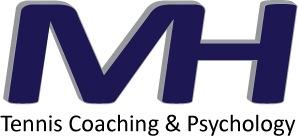 Jamie had been battling hard in the Semi- finals of his County tennis Championship but to no avail he lost 7-5, 7-5. Jamie came off court dejected and visibly upset, his coach said all the right things starting with all of Jamie’s positives and then gently moved on to areas needing improvement. Before he finished he asked Jamie one question ‘what hand did your opponent play with?’ Jamie look confused by the question and after some thought answered ‘I don’t know’. It became apparent Jamie had played a two hour match and not even observed his opponent’s dominant hand.
Jamie had been battling hard in the Semi- finals of his County tennis Championship but to no avail he lost 7-5, 7-5. Jamie came off court dejected and visibly upset, his coach said all the right things starting with all of Jamie’s positives and then gently moved on to areas needing improvement. Before he finished he asked Jamie one question ‘what hand did your opponent play with?’ Jamie look confused by the question and after some thought answered ‘I don’t know’. It became apparent Jamie had played a two hour match and not even observed his opponent’s dominant hand.
So how do coaches teach junior tennis players not only to observe their opponents dominant hand, but how to analyze the opponents strengths and weaknesses?
One of the most effective ways to improve match analysis amongst juniors athletes is to apply Schon’s Theory of Reflection on the court. Reflection by definition is the serious thought about one’s character and actions (Oxford dictionary, 2013). Schon’s proposed there are three stages of reflection. In action- during the match, On action- during the match at the change of ends or between points , and Retrospective- At the end of the match. There are three simple steps a coach or sport psychologist can take to help players start analyzing opponents:
Step one- On action
To prepare players to analyze their opponents either at the change of ends or between points, have two players compete in a tie break and at the change of ends the players and the coach have to remember his/her opponents winners and unforced errors. The players have to feedback to the coach with the opponents forehand, backhand and serve winners and unforced errors. The player with the closest score resembling the coach is awarded a bonus point. This drill will help players reflect in the downtime on what is and isn’t working.
Step two- In action
Teaching analysis in the midst of the point can be very difficult. however, there are several ways to get players to analyze their opponent. Firstly, have two players prior to starting the match allocate to their opponent their strongest shot and weakest shot. The two players will play a short set and and call out weakness every time their opponent strikes the ball with their weakest shot. If the opponent hits three weaknesses in a row they automatically lose the point. This drill get players building and executing strategies mid rally around their opponents weakest shot. Secondly, Reverse this drill, if a player hits their strength three times in a row they are awarded a bonus point however in this drill they continue to finish the point and therefore have the opportunity to win two points.
Step three- Retrospective.
This stage of Schon’s theory is probably the easiest to teach as it is does not have a time constraint. To teach and prepare your pupils for post match analysis, firstly have them review a practice match with the coach on went well and what could be better and secondly, have pupils contact the coach either via phone or text on went well and what could be better. Emphasizing it is important to contact the coach after matches not only helps the player coach relationship but reinforces the need to analyze matches.
In summary, Schon’s theory of reflection gives tennis players the opportunity to analyze their opponent during and after a match. It is important to remember you will have to educate the players to analyze what went well first. If you allow them to analyze what needs to be better they will be over negative and this will lower confidence.
References
Schon, D. (1983) The Reflective Practitioner. How Professionals Think in Action. Basic Books.
Article by Mark Holdstock is a Tennis Mental Coach who is a level 4 performance coach who has a MSc in sport psychology. If you have any enquires please go to www.markholdstock.co.uk


























